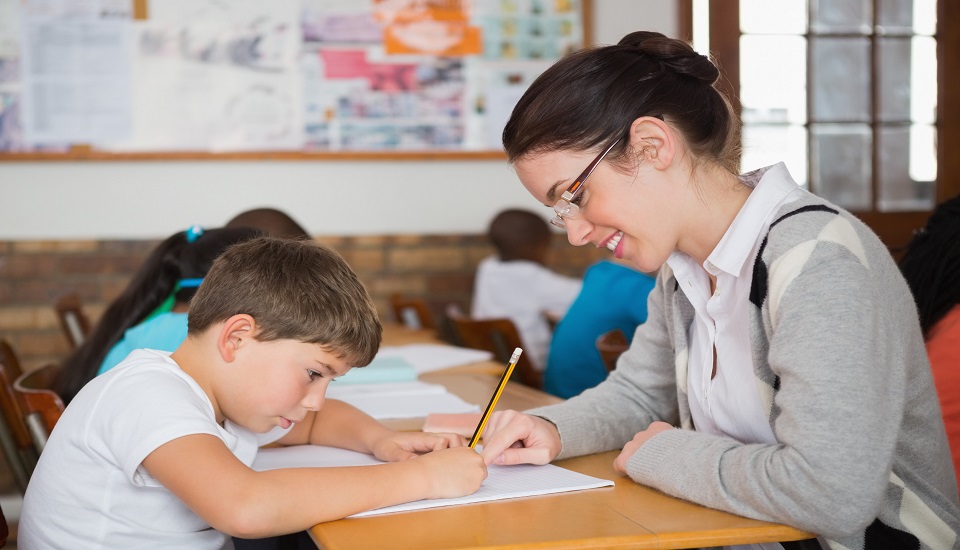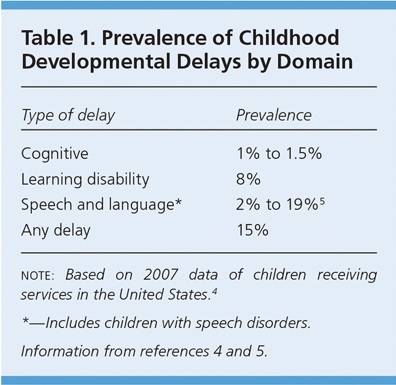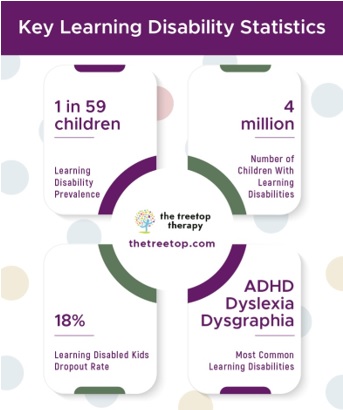The Difference Between Learning Disability And Developmental Delays Every Teacher Must Know
4th December 2023
Learning disabilities and developmental delays are hard to define and what is even trickier is to distinguish them from one another. Depending on how they are used developmental delays are disabilities that impact more than one part of a child's development. However, learning disabilities are challenges that only impact the academic aspect of the child.
In reality, however, both these issues are grouped under neurodevelopmental disorders in the official Diagnostic Manual (DSM-5). Learn about the specific diagnoses that fall under developmental delays and learning disabilities.
What Is A Developmental Delay?
This is when a child hasn't reached one or more developmental milestones promptly. These expected milestones can be emotional, behavioral, physical, and intellectual achievements.

Source: www.aafp.org
Many developmental delays might begin at birth. However, others might surface as the child grows old. Such delays can either be relatively minor or life-challenging. Thus, it is essential to diagnose the condition correctly and early to understand the gravity of the issue.
What Are The Types Of Developmental Delays?
Some of the major developmental delays include:
- Attention Deficit Hyperactivity Disorder (ADHD)
- Autism Spectrum Disorder (ASD)
- Fragile X Syndrome
- Cerebral Palsy (CP)
- Intellectual Disability
- Learning Disorders
- Spina Bifida
- Tourette Syndrome
Learning disorders are a part of this list as some of the items on the list impact just one area while others influence multiple areas of a child's life.
Hey, do you follow us on Social Media? We regularly share upgraded educational content, tips, feedback and more. Check us out by clicking the profiles here - Facebook / Twitter / LinkedIn / Pinterest / Instagram / YouTube
What Is A Learning Disability?
These are disabilities or delays that affect the academic learning or performance of a child. It is very common in children with more global disabilities and delays such as Autism or ADHD. Hence, some children have no other disabilities or delays other than a range of developmental disabilities that can make learning quite challenging for them.

Source: www.thetreetop.com
In general, these disabilities only become obvious when a child is asked to perform in an academic setting. Thus, such difficulties are often treated in a school setting, and is often possible for a child to overcome such challenges through proper tutoring, accommodations, and specialized therapy.
What Are The Types Of Learning Disabilities?
There are seven types of learning disabilities that educators should be aware of:
- Dyslexia
- Dysgraphia
- Dyscalculia
- Language Processing Disorder
- Auditory Processing Disorder
- Visual Motor Deficit
- Nonverbal Learning Disability
While it is normal for children to have one of these disabilities, it is also possible to have a combination of these.
What Can You Do As An Educator?
Before acting out, it is essential to understand what a therapist, practitioner, or doctor has to say about a child's development. While you are discussing the child's condition, try asking these questions:
- Are you seeing one developmental delay or just one?
- What aspect of a child's emotional, intellectual, physical, or behavioral development seems problematic?
- When you mention delay, do you think your child can grow out of it?
- What problem do you think the child is having and how can you address it?
If you feel there are legitimate concerns about a child's development, you can consider a full evaluation from the concerned authorities. An evaluation usually includes observations, specific and non-specific medical tests, and questions that are conducted by psychologists, neurologists, occupational therapists, or developmental pediatricians. Once you have the results, you can work with your team of special educators and family members to make an appropriate plan.
Understand What Works Best For A Learner
It can often be upsetting or demotivating to know that a child is suffering from developmental delays or learning disabilities. However, if you are a teacher equipped with an special education courses you can address these situations seamlessly and improve the child successfully. You will be aware of a combination of various approaches like early intervention, appropriate therapies, accommodations, and support.
We believe education should be accessible for everyone. That’s why we don’t charge for our blogs. Find the right course that will help you in your career with us, contact us at - + 1800–212–6400. You can mail us at act@asiancollegeofteachers.com.
Written By : Sanjana
Leave a Reply

